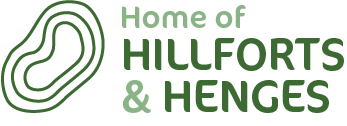Hardy online talk: What lies beneath Max Gate?
Date: Thursday 28 July, 5.30-6.30pm.
Join us for this revealing talk about the archaeology of Max Gate, Thomas Hardy’s former home. It is being led by National Trust archaeologist Martin Papworth, with Hardy’s Wessex curator Harriet Still and Wiltshire Museum director David Dawson.
In 1884, the writer Thomas Hardy unwittingly built his house Max Gate (near Dorchester) in the centre of a late Neolithic enclosure, now known as Flagstones. During the foundation excavations, he revealed a sarsen stone and various Romano-British clasps and bowls, as well as human remains.
Now, 138 years later, Martin Papworth returns to the same site to see what else this fascinating and ancient site can reveal to us.
This is an online talk via Zoom, a joint event by Wessex Museums and the National Trust, as part of the Festival of Archaeology and Home of Hillforts & Henges. Cost £5 per screen.
A feast of archaeology in Dorchester!
Home of Hillforts & Henges (21st to 31st July) is an exciting new event which celebrates Dorchester’s neolithic, bronze and iron age landscape, rich in earthworks and the people that have lived here for over 6,000 years. It is being staged as part of the National CBA Festival of Archaeology 2022 and activities will take place at multiple locations across the town.


